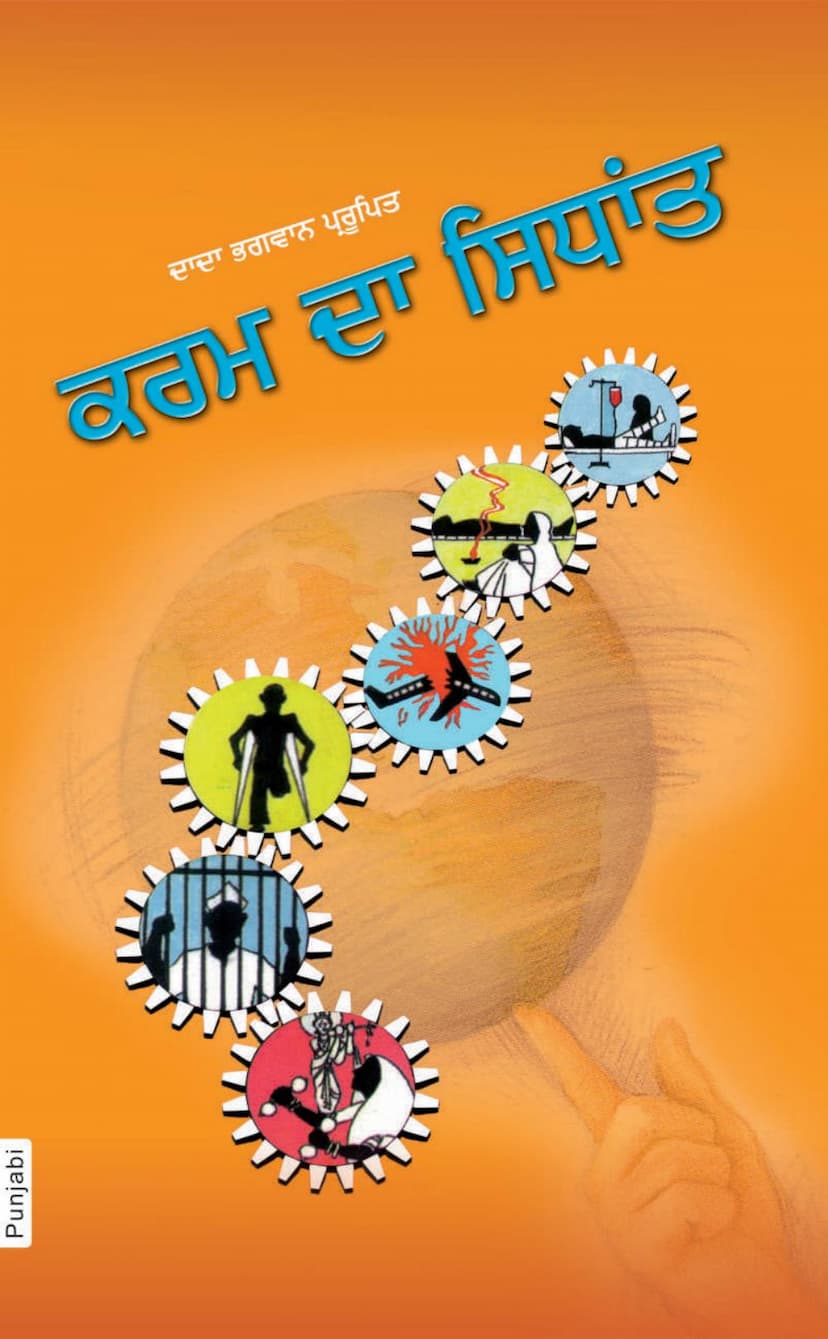The Science Of Karma Punjabi
Added to library: September 2, 2025

Summary
Based on the provided Punjabi text from "The Science of Karma" by Dada Bhagwan, here's a comprehensive summary in English:
This book, "The Science of Karma" (Karma da Siddhant), compiled from the teachings of Dada Bhagwan and translated into Punjabi, aims to explain the complex principles of karma. Dada Bhagwan, who attained self-realization in 1958, offered a scientific and direct path to understanding the truth behind spiritual questions, including the nature of karma.
Key Concepts and Teachings on Karma:
- The Nature of Karma: The book clarifies that what people commonly refer to as "karma" (actions like jobs, religious practices, etc.) are actually the results or fruits of karma (karmaphal). The true karma, the seed of karma, is very subtle.
- Karma is Charged by the "Doer" Attitude (Karta Bhav): Karma is charged when one acts with the egoistic belief of "I did it" (Main kiya). This egoism, stemming from ignorance, leads to the binding of karma.
- Egoism (Ahankar) as the Root Cause: Ahankar, the belief of being someone you are not, or believing you are the doer of actions when you are not, is the fundamental reason for karma. This includes identifying with the body, speech, mind, or name, rather than the true Self.
- The Role of Ignorance: Ignorance (agyanta) creates egoism, which in turn perpetuates the cycle of karma and bondage.
- True Responsibility: The book emphasizes that humans are responsible for their lives and the karma they charge. Animals and even celestial beings are not held responsible because they lack the egoistic "I did it" attitude. Mankind is uniquely responsible due to its ability to identify with the ego.
- Karma and Duty: While duty is mentioned, the core message is that true liberation from karma comes not from performing actions, whether with desire (sakan karma) or without desire (nishkam karma), but from realizing the Self. Performing actions, even without personal desire, still involves the "doer" attitude, which binds karma.
- The "Akram" Path: Dada Bhagwan taught the "Akram Marg" (effortless path), a shortcut or "lift-like" method, as opposed to the "kram" path which involves gradual progress. This path leads to self-realization in a short period.
- The Enlightened Being (Gyani Purush): Meeting an Enlightened Being is crucial. They can shatter ignorance, provide knowledge of the true Self, and reveal who the actual doer is. This process stops the charging of new karma.
- Discharging Karma: After gaining self-knowledge, the remaining karma (discharged karma) can be resolved with equanimity. Once all karma is discharged and no new karma is charged, liberation (moksha) is attained.
- The Science of Karma and Karmic Fruit: The book explains that karma operates on a scientific principle. Karmic fruits are experienced due to "scientific circumstantial evidence." The reactions of attachment (raag) and aversion (dvesh) while experiencing karmic fruits lead to the charging of new karma.
- Subtle vs. Gross Karma: Gross karma, which is observable (like theft or lying), yields its fruits in the current life. Subtle karma, the underlying feelings and intentions (like anger or possessiveness), bears fruit in future lives.
- The "Dada Bhagwan" Consciousness: Dada Bhagwan identifies "Dada Bhagwan" as the pure Soul consciousness residing within everyone, which is fully manifest in the Enlightened Being. He, as A. M. Patel, is the physical form and the enlightened representative.
- The Goal: The ultimate goal is to recognize the true Self, the Pure Soul, which is beyond all actions, doership, and the consequences of karma. This realization leads to liberation from the cycle of birth and death.
- Practical Guidance: The book includes prayers and affirmations ("Nav Kalma" and "Pratikraman Vidhi") to help readers purify their intentions, overcome ego, and progress on the spiritual path. These are meant for daily contemplation and application.
In essence, "The Science of Karma" by Dada Bhagwan presents karma not as a system of divine reward or punishment, but as a scientific law of cause and effect driven by ego-centric actions and ignorance. True liberation is achieved through self-realization, facilitated by an Enlightened Being, which stops the charging of new karma and leads to the discharge of existing karma, ultimately freeing the soul from the cycle of rebirth.